Make these homemade herbal stress relief capsules to naturally de-stress and relieve anxiety from a long day. Great for winding down at the end of the day and getting the rest your body needs.
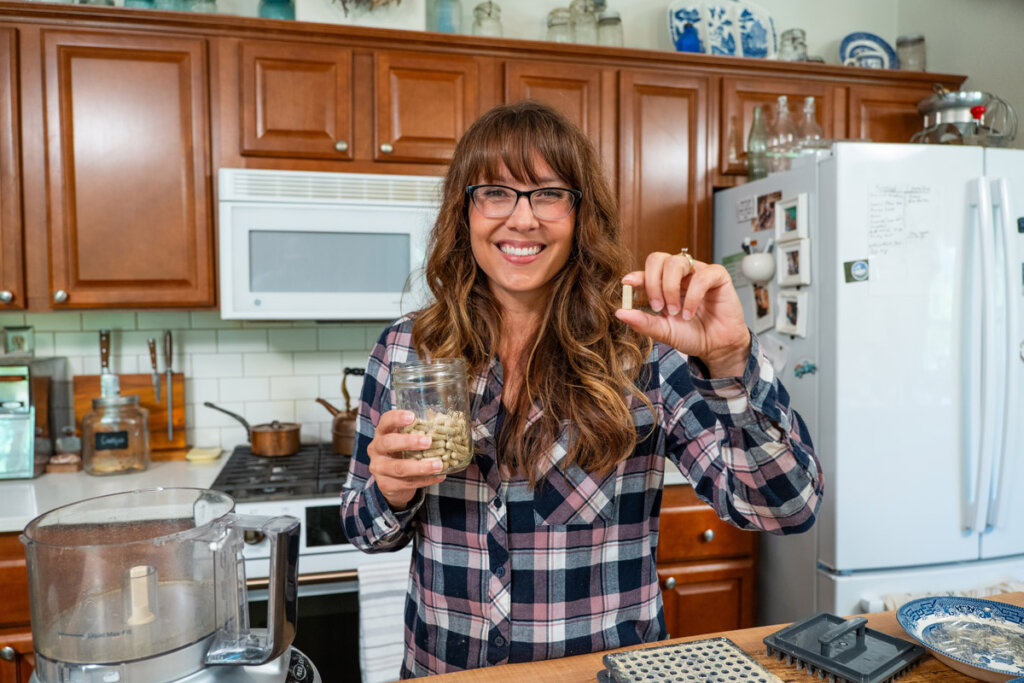
No matter what season of life we’re in right now, we all have times when we feel stressed and overwhelmed. Oftentimes, that can make it extra hard to fall asleep at night, which compounds things even further.
When we’re stressed and can’t fall asleep, that adds on even more problems than the original stress. When looking at our health, we must take steps to manage our stress (instead of only working on it during times of high stress) and get the best sleep possible.
This is why I love using medicinal herbs and knowing when and how to harvest medicinal herbs to preserve them for use in remedies like this.
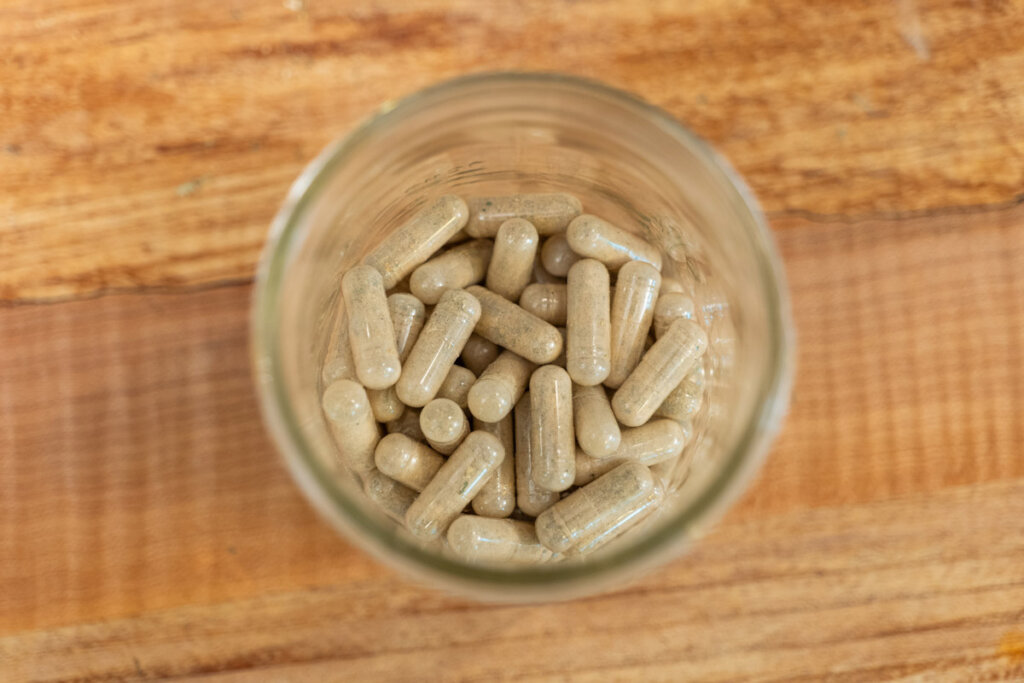
Why I Love This Remedy
I don’t want to rely on OTC sleep medications to help me sleep, so I love natural remedies that I can take to help prevent and support my body any time it could use the extra support.
Though I do love a good cup of herbal medicinal tea (especially to help de-stress at night), sometimes I’m not in the mood for tea, nor do I want to heat a kettle of water and wait for my tea to be ready.
This is why making my own herbal capsules at home is not only a great option, but I’ve found it also saves a lot of money over buying herbal supplements from the store. I also make beef liver capsules instead of taking over-the-counter multivitamins.
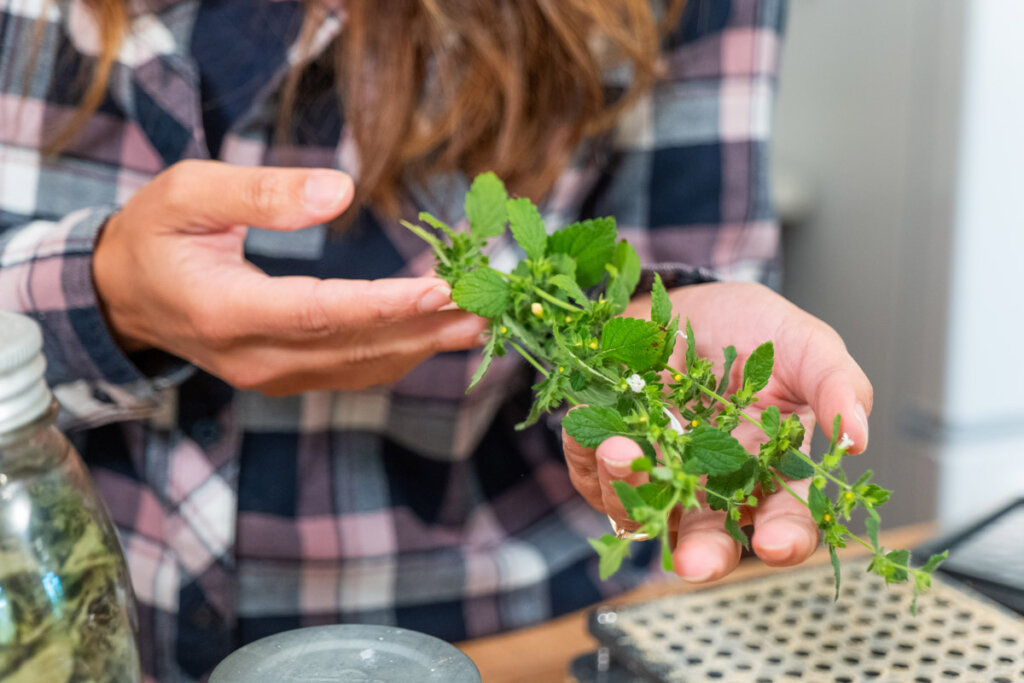
Choosing the Best Herbs for Medicinal Purposes
When purchasing or storing dried herbs, it’s always best to purchase them and store them in as close to their natural form as possible. As soon as you chop, crush or powder the herbs, more surface areas are exposed to oxygen. It’s the oxygen that’s going to degrade the medicinal properties more quickly, and your herbs won’t be as potent.
So, keeping herbs in their whole form until you’re ready to powder them for capsules is ideal. Furthermore, only powder and encapsulate what you’ll use in a matter of a few weeks to keep them at their highest potency.
The best way to tell if your herbs are still potent is by their smell. When you open a jar of dried herbs, they should still smell like the plant. They may not smell as strong, but a distinct scent should still be. If there’s no smell, they may be past their prime.
A general rule of thumb is that store-bought herbs are good for about a year, and homegrown herbs are good for about two years. If you’re looking to start a medicinal herb garden, I highly recommend getting this Strictly Medicinal Seeds set.
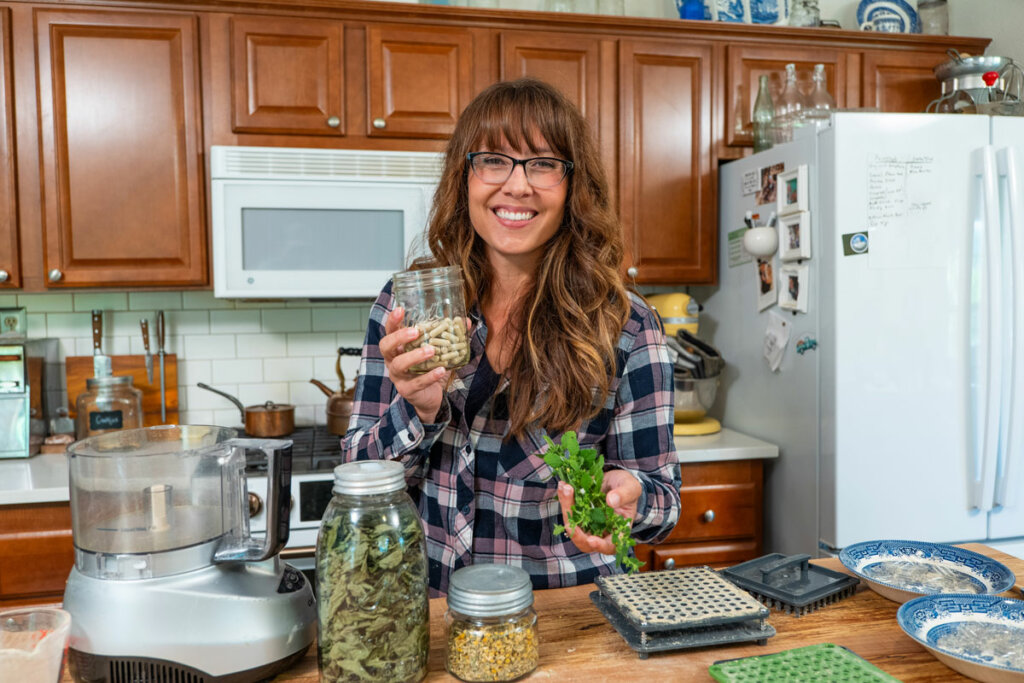
How to Make Stress Relief Capsules
Supplies Needed
- Food Processor – For powdering the herbs. You could also use a coffee grinder, a high-powered blender or a mortar and pestle.
- Herb Capsules – Make sure the herb capsules you purchase fit the machine you’re using. If you don’t have an encapsulating machine, you can also hand fill capsules, though be forewarned, this will take quite a while.
- Encapsulator Machine – A machine for encapsulating your pills will save you hours of time. This is where I purchased my capsule maker.
- Bowls – You’ll want bowls to hold all of your powdered herbs as well as the tops and bottoms of your capsules.
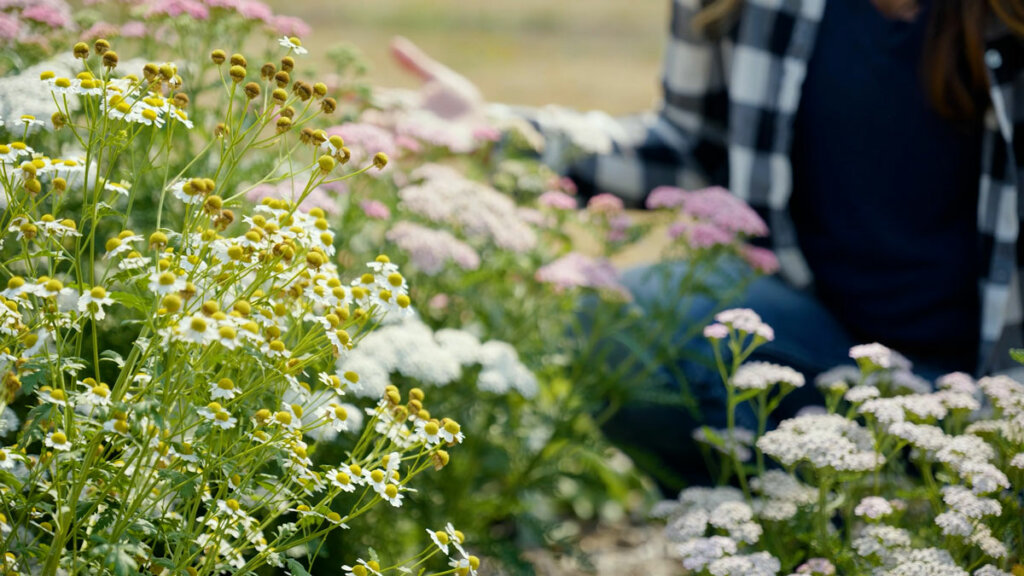
Ingredients Needed
- Lemon Balm – Medicinally, lemon balm helps to ease stress, anxiety, insomnia and indigestion. It’s part of the mint family, and like peppermint, the leaves dry well, and it still packs a great flavor punch even when using dried leaves. I can’t resist pointing out that lemon balm’s official name is Melissa officinalis, so needless to say, this plant holds a special place in my heart! It has a subtle lemony flavor (big shocker, right?), so it tastes great when prepared as an herbal tea. Grab organic dried lemon balm here.
- Chamomile – It’s important to note that there is a distinguishable difference between Roman and German Chamomile. We’re looking for Roman Chamomile here. It’s known for its calming, relaxing properties. You can harvest and dry Roman Chamomile to make herbal tea or these herbal capsules. It’s excellent when combined with lavender for ultimate relaxation. Grab organic dried chamomile here.
- Ashwagandha Root – Ashwagandha is a great adaptogen herb, which means it helps the body adapt to stress and come back to homeostasis. Adaptogenic herbs work best when used on a daily basis. I’m not growing ashwagandha on our homestead… yet! So, for now, I purchase it. Grab organic ashwagandha root here.
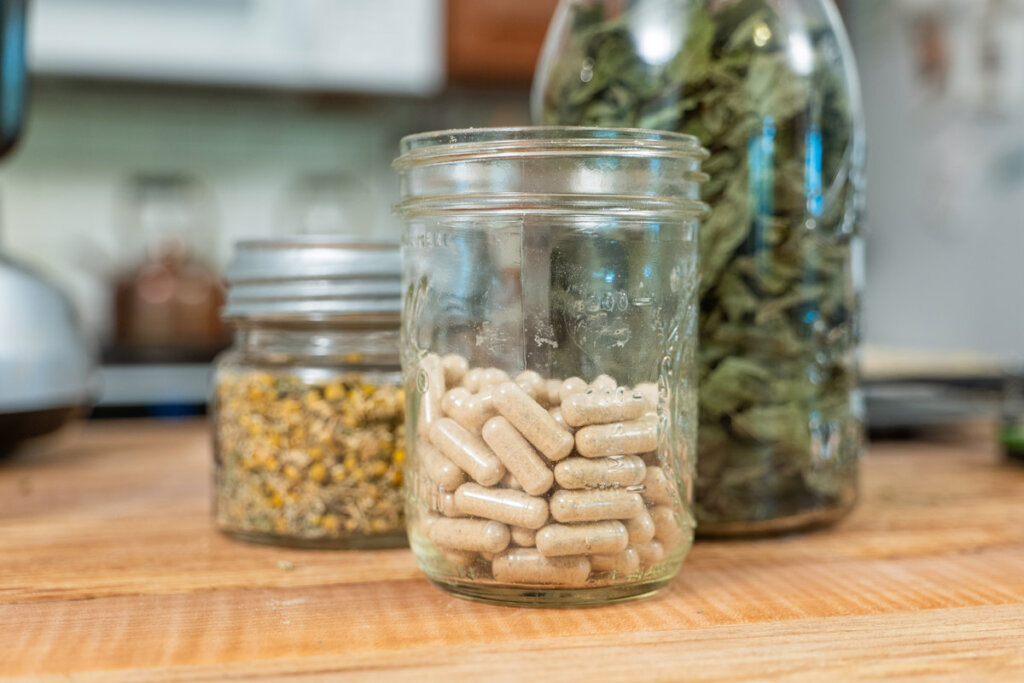
Step-by-Step Directions
- Powder your herbs using a food processor or a high-powered blender and place them into individual bowls.
- Measure out 1/2 part powdered ashwagandha, 1 part powdered lemon balm, and 1 part powdered chamomile to a bowl and stir to combine.
- If using an encapsulator machine, follow the instructions that came with your machine and prepare your capsules to receive the herbs.
- Fill the capsules with the powdered herbs, tamp down, fill again, tamp down, then fill a final time.
- Add the top of the capsules.
- Put capsules in a Mason jar with a lid. Label and date the jar so you know just how fresh your herbs are.
- Store them out of direct sunlight (or better yet, in a cool, dark cupboard).
- Take one capsule daily or two capsules daily during times of excess stress.
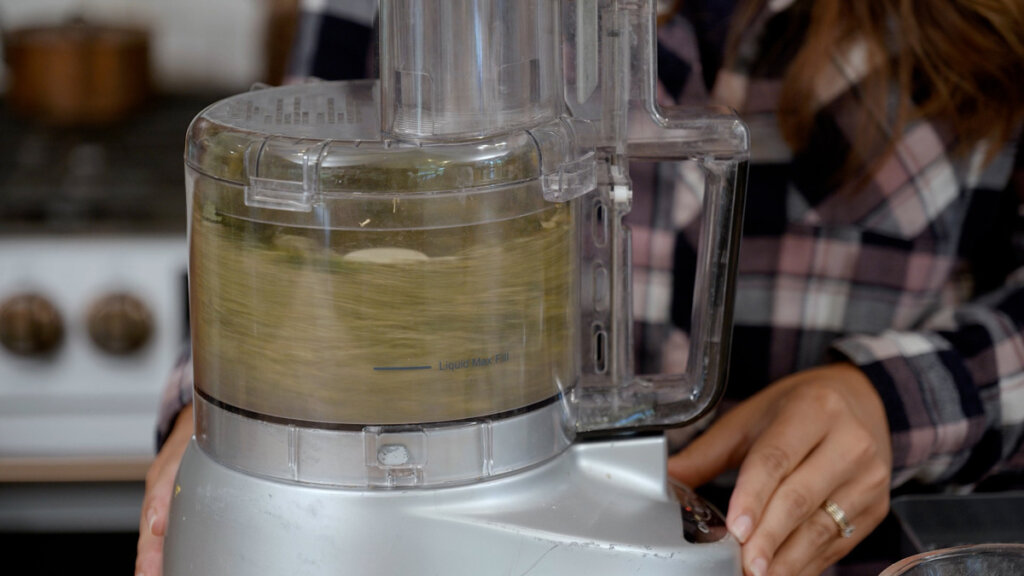
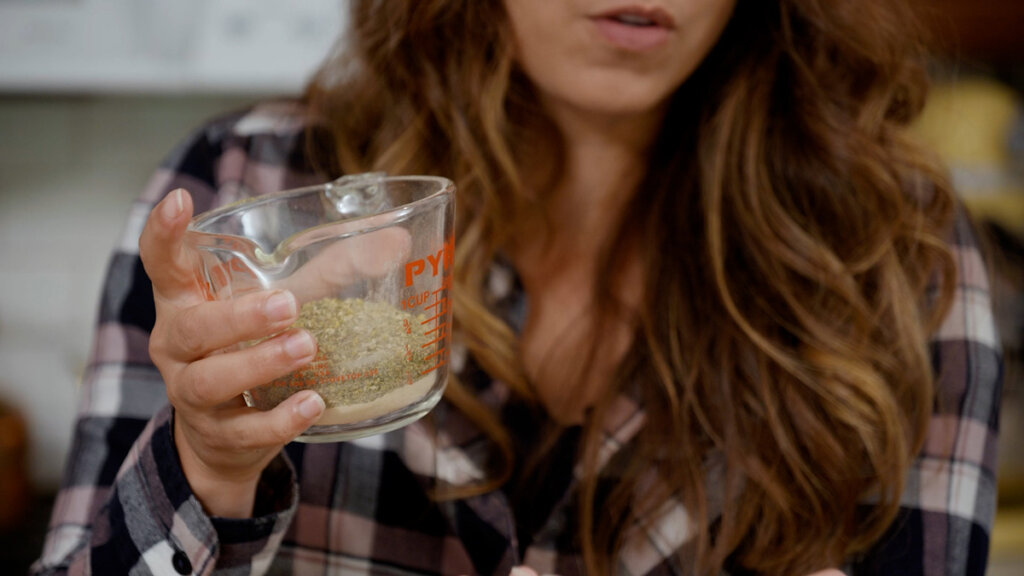
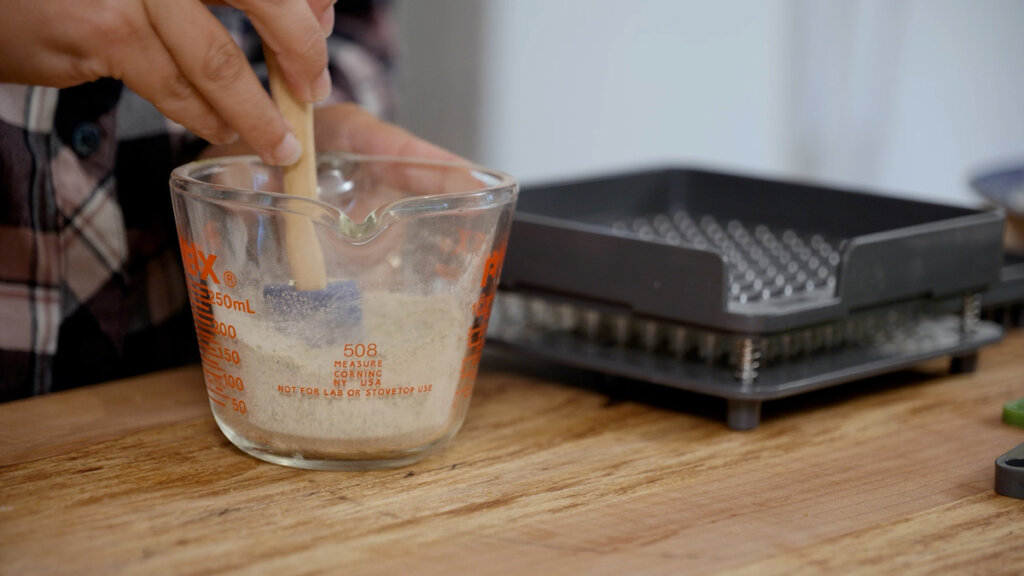
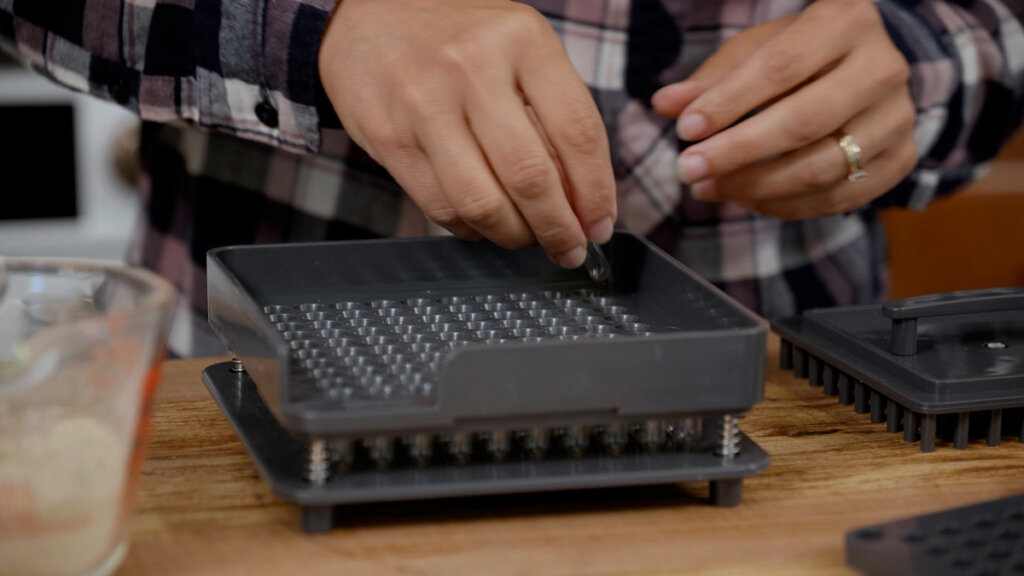
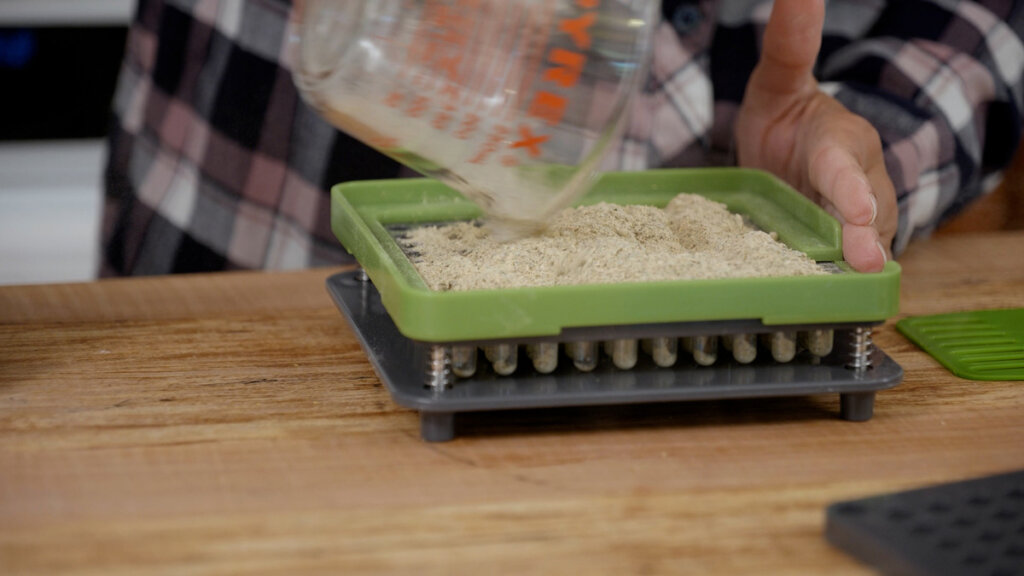
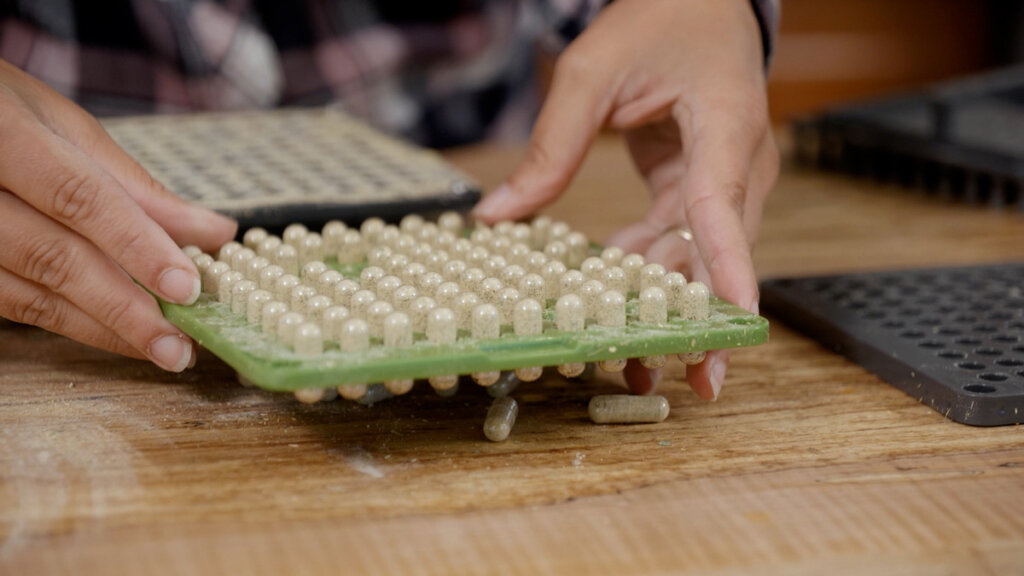
Did you make this remedy? If so, please leave a star rating in the recipe card below. Then snap a photo of your finished herb capsules and tag me on social media @melissaknorris so I can see!
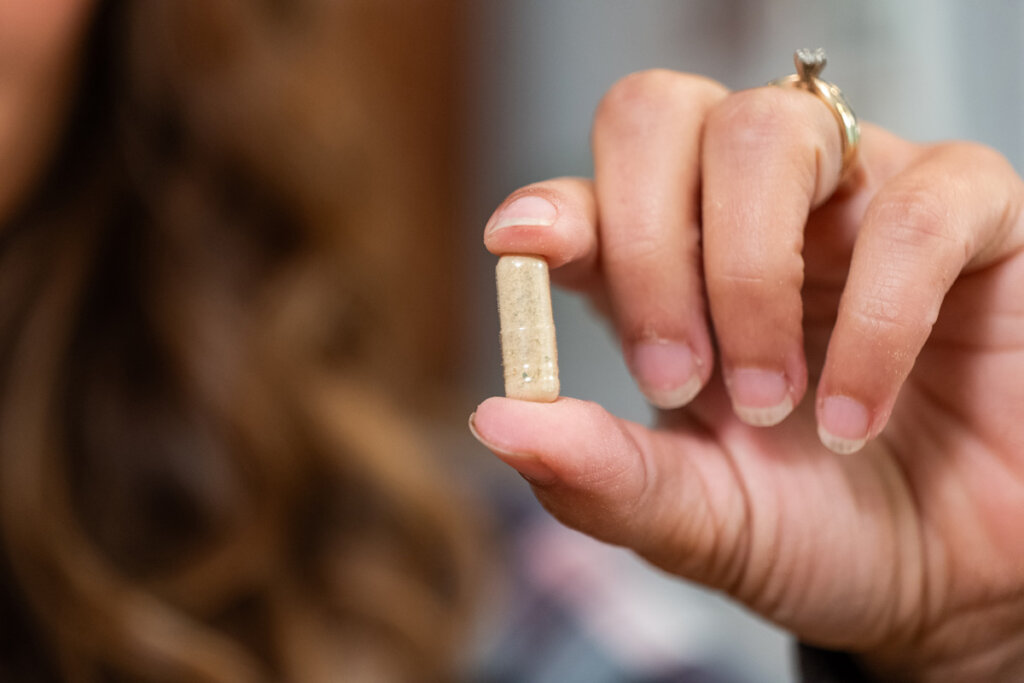
Practical Home Herbalism Course
It’s not too late to join my mini herb course (2023). If you want a solid foundation for treating yourself and your family with herbs, sign up for this free course.
This mini-series is just a taste of what we’ll dive into during my FREE herb training (on September 27, 2023). Make sure to reserve your spot on the waitlist today!
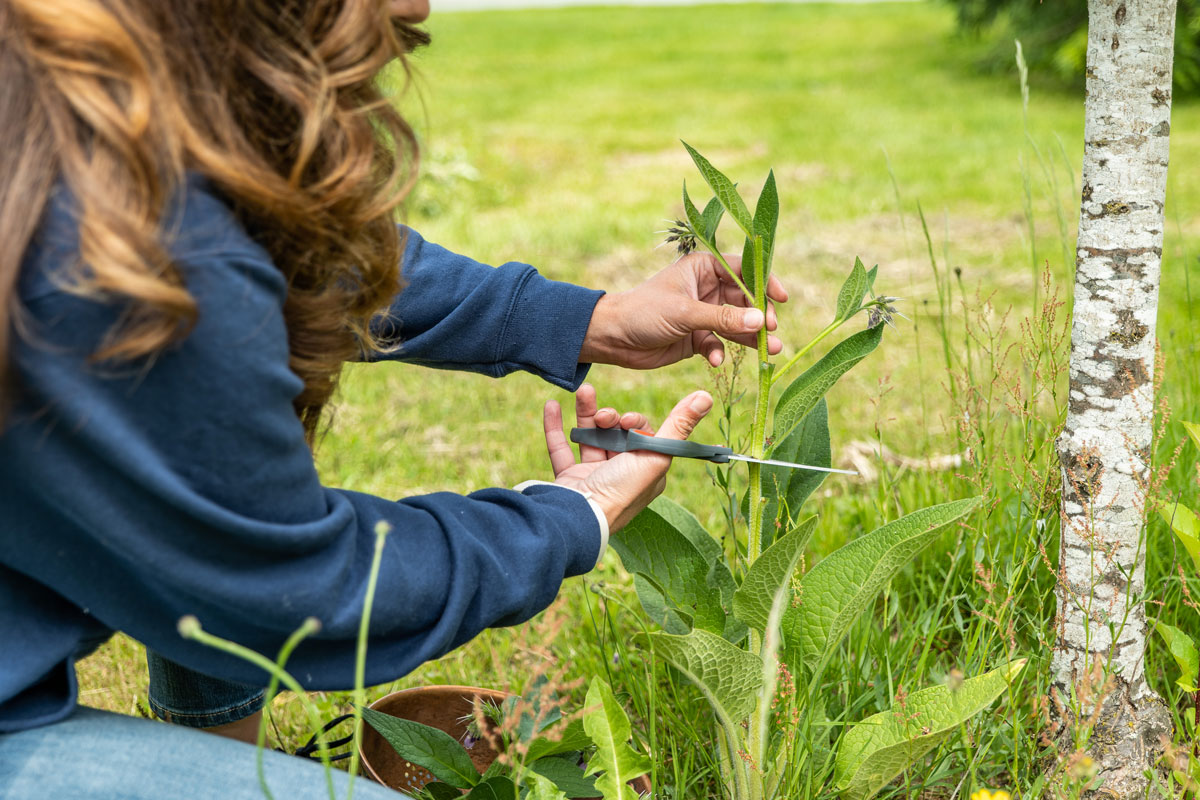
Other Articles You May Enjoy
- Herbal Would Healing Salve
- Homemade Calendula Oil
- Peppermint Salve
- Comfrey Poultice
- How to Use Herbs and Natural Remedies at Home
- 5 Rules for Foraging for Wild Edibles
- Foraging for Wild Medicinal Herbs
- Cottage Garden
- Alternative Medicine (& What to Do if Your Medicine Isn’t Available)
- Medicinal Herb Garden (Planning & Growing)
- Herbal Remedies for Animals (Pets & Livestock)
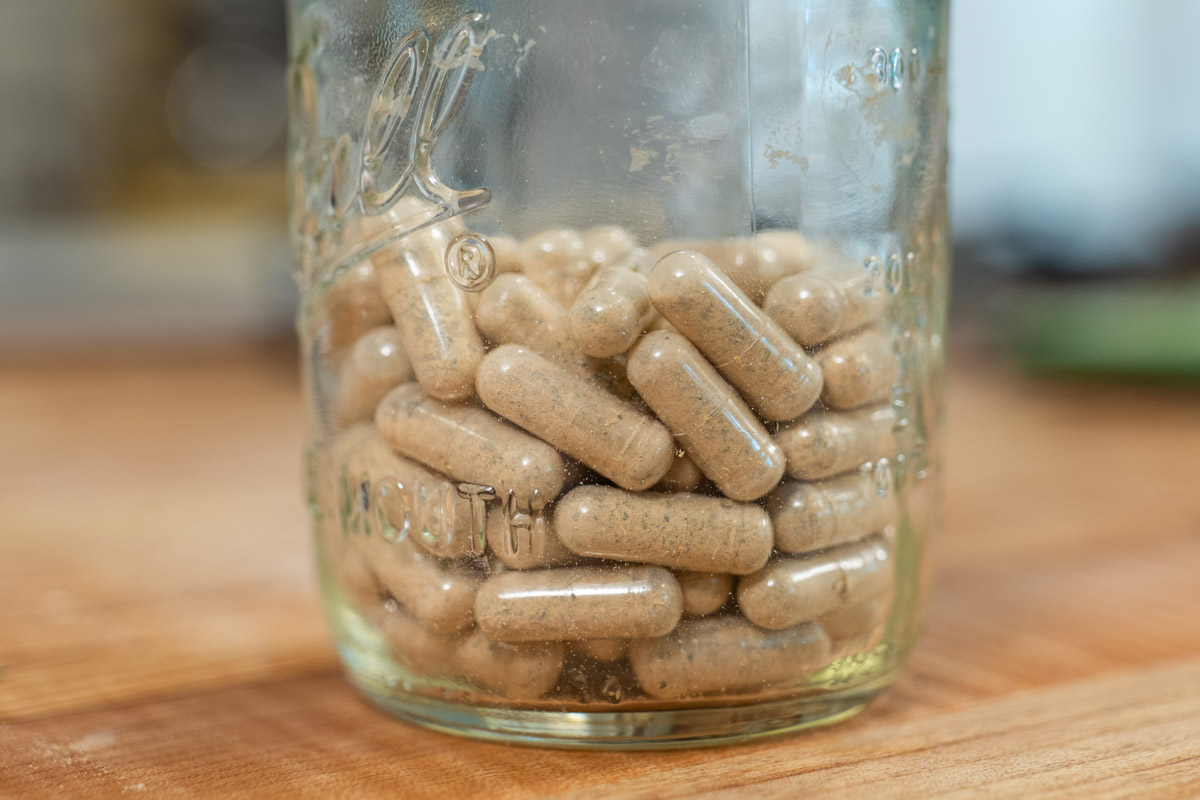
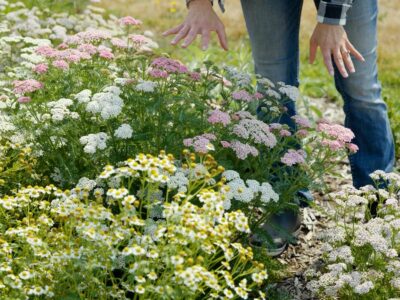
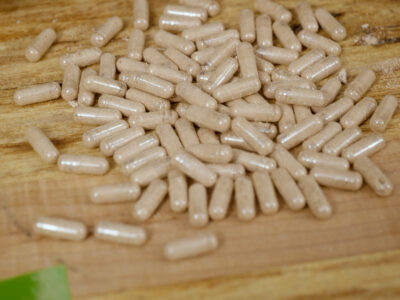
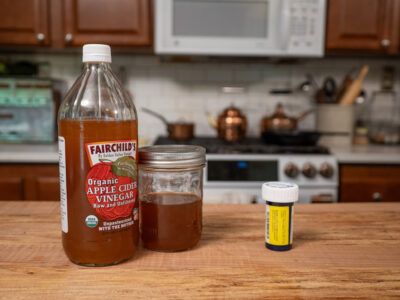
Leave a Reply